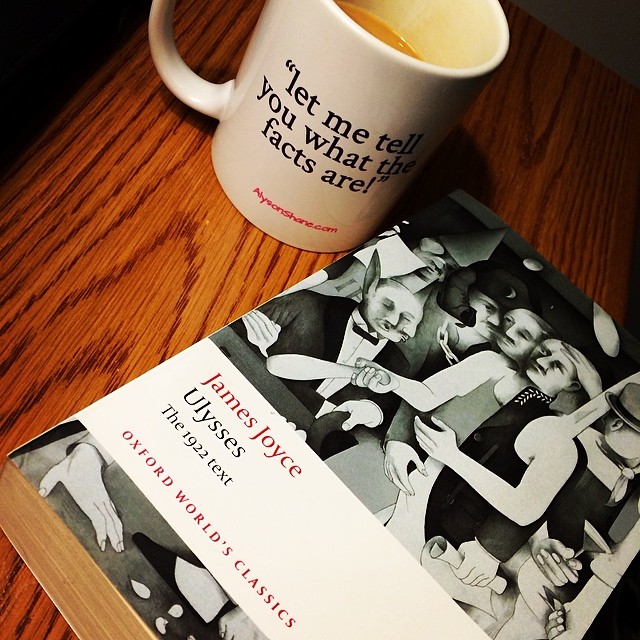Tagged: books
All the white horses are still in bed
- by Alyson Shane

It's Tuesday evening and I'm warming up from walking to the store.
Winter has settled in after months of mild weather and my nose, fingers, and toes feel it as soon as I step outside.
Soon it'll be -40 like usual and I'll be barricaded inside my house, cozy with our radiant heat and blankets and multiple cups of tea.
It's been a good day. I submitted a proposal, booked a discovery coffee with a potential client, took a few meetings and wrapped a strategy consulting session with a small business we've been supporting.
I have cheques to cash and emails to send to my new bookkeeper.
More proposals to send out this week and onboarding a new client to start on next week.
The business feels good; the kind of steady chaos that makes me feel invigorated and excited when I roll out of bed in the morning
though it's hard to wake up at my usual time when it's dark out so I've been sleeping in a bit
(I've convinced myself that summer is the time for early mornings while winter's the time for long, late nights and quiet mood lighting.)
I read an article today about different kinds of teams; how larger businesses split up different groups to tackle tasks and how they work independently and in lockstep with each other
(stuff that's boring to most people but fascinates me for some reason)
and tonight I'll finish a book about haenyeo which are female divers from the Korean island of Jeju. The book is called The Island of Sea Women and I'm obsessed with it.
The book is a piece of historical fiction about the haenyeo's practices how they're fading with time and modernization
(which is a trend that seems to be effecting everywhere these days)
but the parts that interest me the most are the scenes that describe diving in frigid waters, finding different sea creatures and knowing how to feel the water, the tides, the pull of the ocean and knowing how to stay safe
all while managing temperatures that would cause hypothermia in most people, including (according to researchers who come to the island) basically every other group of humans who live in unusually cold climates.
Maybe it's because I grew up and live in a place where it's been known to get colder than the surface of Mars, but I don't mind the cold most of the time and I'm not surprised that it turned out that women on Jeju were the ones who were able to withstand the freezing temperatures
(females are strong as hell, after all)
even though this woman is a wuss who bundles up in 597586482 layers to walk to the G-damn grocery store in broad daylight.
I've been thinking about revenge a lot lately
- by Alyson Shane

I'm reading the Count of Monte Cristo and I'm almost done, or at least as close to "done" as I can feel when I'm 1245 pages into a book that's 1468 pages long.
(Yes I've been reading it for a while, why do you ask?)
I've struggled with this book. In case you haven't noticed, it's really fucking long, and I've wanted to quit reading it more than once. But I've heard it's worth it from several people so I've slogged through chapters that often felt irrelevant or meandering anyway.
The thing I've struggled with most though is the main character. The Count of Monte Cristo.
In theory, he's the main character, but the novel focuses on the other characters instead. What they're up to, who they see, what they talk about. It gets boring sometimes because conversations get too detailed and can seem irrelevant to the plot, and it's normal to read several chapters without the Count even showing up to pay anyone a visit.
Dumas talks about him so little that sometimes you forget he's in the book.
Now I'm at the point where things are wrapping up, and I still don't know who The Count of Monte Cristo is. What he thinks about. Who he is as a person. He's this enigmatic figure everyone seems to revere and admire, but he seems like a facade, like he's hollow inside.
Compared to the other characters, whose feelings, motivations, and private thoughts are described at great length, The Count of Monte Cristo is still a one-dimensional character. I've spent nearly 1400 pages with this person and I barely know him.
This character who apparently knows so much, has been to so many places, has impeccable taste, etc etc etc
feels like a paper cut-out. It's disappointing.
John's read it before, and when I was talking to him about it he turned to me with one of those looks that makes my heart drop to my feet and said
"well, maybe that's the point?"
and it hit me like a ton of bricks: The Count of Monte Cristo is one-dimensional on purpose.
I started reading the book expecting to root for The Count. For the first few hundred pages you're right alongside him, and he starts off feeling like someone who will change and grow as the novel progresses. But that doesn't happen.
Along the way, you lose sight of the character. The book starts to focus on pretty much everyone else, doing what feels like pretty much everything else, and the Count starts to feel like a spectre haunting the other main characters, and less like one himself.
The others have their own motivations, many of which change over time throughout the story. But The Count of Monte Cristo's never changes. He remains focused on his goal.
This person who has everything anyone would ever want — money, luxury, the admiration and respect of his peers — seems oblivious to it.
He goes to the opera, to parties where everyone fawns on him, and lives in luxurious spaces where he only eats and drinks the very best. He has more money than he could ever spend in his lifetime, and could live anywhere in the world doing anything he wanted.
But he stays above it all.
His obsession with revenge, of completely destroying his enemies and making them suffer
robs him of living his own life, too.
I'm not finished — like I said, I still have about 200 pages to go — but I'm curious to see who the Count is at the end of the book. Wikipedia says The Count of Monte Cristo is an adventure novel, but right now it feels like a tragedy.
2019 reads
- by Alyson Shane
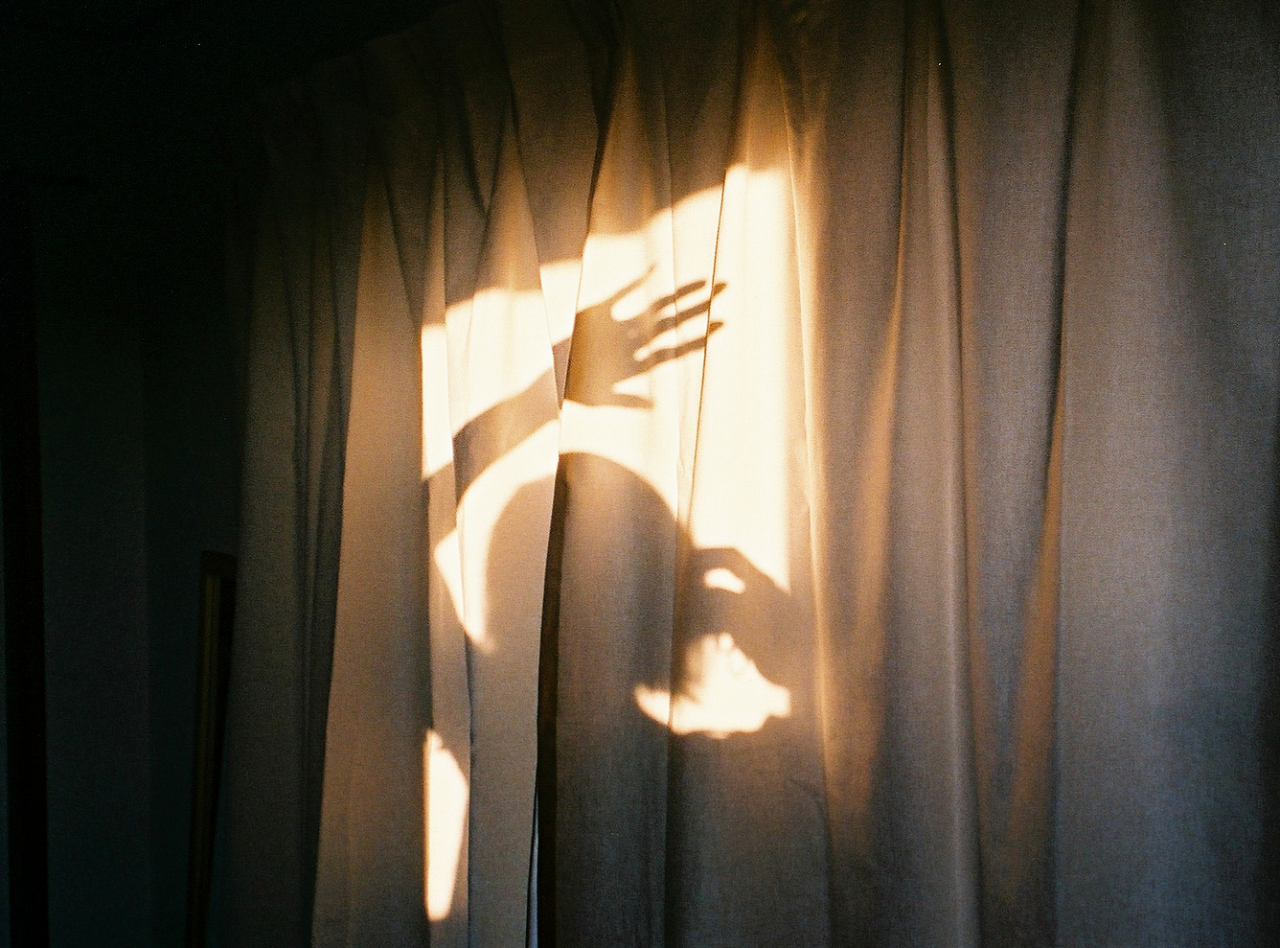
I read a lot this year.
I read more because I made time to read more, but also because I got a head-start while we were in Thailand for a month. I read three books during that trip.
I read a lot of books that I liked. A lot made me cry. Some I didn't like, but finished anyway because
(as I learned while reading Hemingway's "A Farewell to Arms")
sometimes the point of reading a book isn't about enjoying it.
In any case, here's what I managed to read this part year in (somewhat?) chronological order:
Crossing the Chasm
Marketing and Selling Disruptive Products to Mainstream Customers
I started 2019 with a business read that made a profound impact on how I approach marketing and selling.
Crossing the Chasm is about marketing for tech startups, and I read it to learn more about how to launch HeyAlfa. But I also found gems of wisdom that I could apply to the work we do at Starling Social.
The book has a sense of humour and uses timely examples to draw interesting conclusions about product/market fit, marketing to the right customers, and how to build a business that doesn't crash and burn.
It's a good read, and something I'd recommend to anyone in my industry.
Things Fall Apart
This might be one of the best books I've read to date.
"Things Fall Apart" is a Nigerian novel written by Chinua Achebe and published in 1958. It follows the life of Okonkwo, an Ibo man who is a wrestling champion in his tribe, and chronicles life in pre-colonial Nigeria, and how the arrival of the Europeans impacts and changes their way of life
Sometimes, reading this book felt like watching a car crash in slow motion. It's horrible, but you can't look away.
I read it in one sitting on our red-eye flight from Vancouver to Shanghai, and I cried at the end.
The Broken Ladder
How Inequality Affects the Way We Think, Live, and Die
In this book, psychologist Keith Payne examines how the subjective experience of feeling poor impacts how people think, behave, and make decisions.
Citing the latest research in neuroscience, psychology, and behavioural science, he shows how people who see themselves as poor make different (and generally worse) decisions than people who see themselves as wealthy.
I spend a lot of time thinking about policy and politics, so this was the perfect read to dive into while on the Night Train from Bangkok to Chiang Mai.
I learned a ton, and have a deeper and more empathetic view of poverty (and what we can do to solve it) than before.
This, and Things Fall Apart, are from Barack Obama's 2018 book list.
A Tale of Two Cities
It took me a long time to get into Dickens.
He's too wordy for my taste; Hemingway has ruined me forever. But once you can get past the flowery wordplay and run-on sentences and
honestly just too much dialogue in general
it's a powerful story that crashes into you like a tsunami and leaves you wrecked up on the beach. It makes you gasp for air. It scared the living daylights out of me.
I wasn't expecting to see so many parallels between the French Revolution and what's happening in the world today, but I saw a lot and I'm shook.
I think a lot about things like
the coming wave of automation
the impact of climate change
and
the disparity between the ultra-rich and the poor
and reading A Tale of Two Cities was a horrifying example of how people who have nothing retaliate with
everything
and how quickly even the best intentions can be twisted into eating itself alive.
If you haven't read this book, read this book.
But know it's not the best thing to read on a crammed nighttime flight from Vancouver to Winnipeg because you will ugly-cry while reading it.
Lost Connections
Uncovering the Real Causes of Depression – and the Unexpected Solutions
My friend Brent recommended this book, which argues that the real causes behind rising rates of depression and anxiety can be found in how we live our lives in the modern world.
I think a lot about how aspects of our culture and what living in a capitalist society does to us, and how that impacts our happiness. This is a book about how those things are making us depressed, and some things we can do
individually, and as a community
to stop trying to medicate away a problem that is potentially the result of more environmental causes.
I didn't always agree with everything the author had to say, but it was an interesting approach to a problem that I struggle with, and that seems to be increasing.
Wind/Pinball
Another year, another Murakami novel.
This book is actually two books: Pinball, 1973 and Hear the Wind Sing, which are the first and second books in his "Trilogy of the Rat" series.
(I haven't read the third book yet, but intend to.)
These novels, like most of his others, feature apathetic narrators who float through a series of events without reacting that much to them.
There something about this style
the weird way it allows Murakami to write about odd things, like living with twins whose names the narrator doesn't know
that I love. These books are interesting explorations of companionship, loss, and obsession, and I loved every minute of this read.
High Rise
This was one of the best books I read this year.
I read this book because I saw the move and didn't like it very much. I decided to look it up on Wikipedia, and as it turns out the book is (predictably) way better than the book.
This book is like a blend of Lord of the Flies with American Psycho with a retro twist. The novel focuses on a state of the art high rise with a pool, supermarket, hair salon, even a school, located within the building. Naturally, the richest people live in penthouses, with middle-class people occupying the middle section, and poor people on the lower levels.
The building starts to fail, and the tensions between floors escalate in crazy and unnerving ways.
This was a great read if you like a book that will mess with your head and leave you feeling off before bed.
Junji Ito's Cat Diary: Yon & Mu
I debated leaving this book off the list because it's a manga and not a novel, but screw it — I loved this book, and if you're a cat owner like me then you should check it out.
In case you're not a huge nerd like me, Junji Ito is a famous Japanese horror manga artist behind scary stories like The Enigma of Amigara Fault, and a lot of the weird manga art you may have seen online.
I liked this little read because it was charming
(and a bit creepy)
to see illustrations of normal "cat stuff" like poohing outside the litter box, or jumping on you while you're asleep in creepy af manga style.
You Get so Alone at Times That It Just Makes Sense
This is a collection of poems about abuse and cats and it made me laugh and cry and feel understood and
not so alone.
I love Bukowski's poetry, and highly recommend this collection.
Here is my favourite:
“the courage it took to get out of bed each
morning
to face the same things
over and over
was
enormous.”
Love in the Time of Cholera
I just finished this book today, actually, and it didn't live up to the hype. Let me tell you why:
1. It's too long winded.
Like Dickens, but more prone to tangents that I'm sure were intended to paint a vivid tapestry of characters... but felt over-complicated. The book could have at least a third shorter.
2. I struggle with stories that treat obsession like love, and that glamorize men stalking and harassing women as "romance"
not to mention several unsettling instances where people fell in love with their rapists?
I appreciated the themes of the book, like love being akin to a disease (cholera), but this one felt like a slog, and not in a good wa
There were moments that were touching, and where the complicated writing made way for some truly beautiful turns of phrase
but honestly, I didn't care for it all that much.
And that's okay, because we don't need to enjoy everything we read.
What did you read in 2019? Tweet at me and let me know which books you loved.
I try to rest a bit on Sundays
- by Alyson Shane
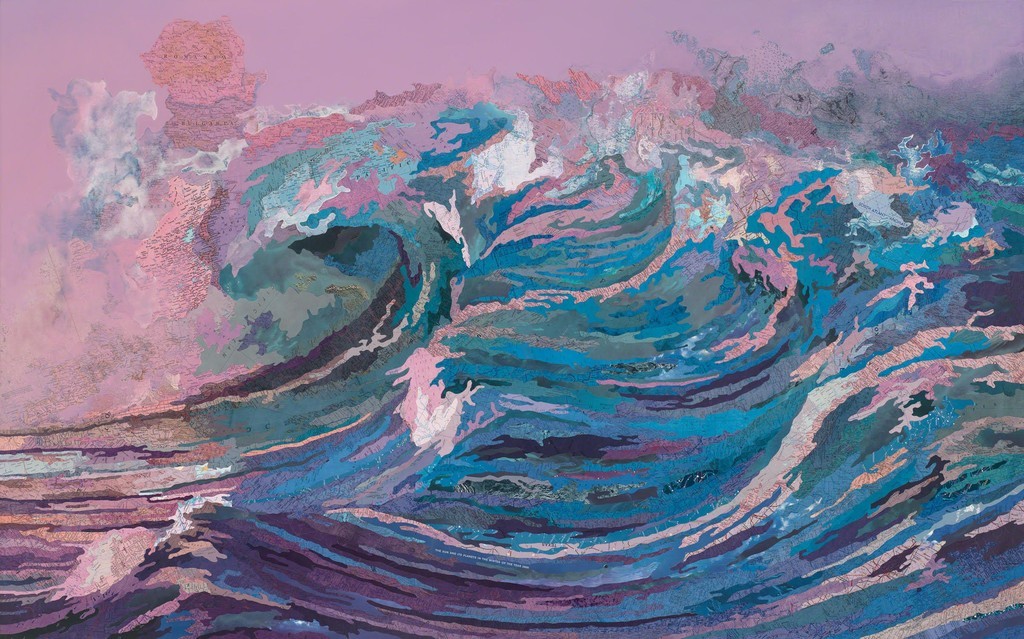
This morning I was having a dream about being in school, or on a campus of some sort. My dreams are typically pretty vivid and have been positive and adventurous recently, which I've enjoyed.
I was dreaming about sitting in a too-hot kiddie pool and talking to a boy named Eric that I went to high school with about politics when John slid back into bed and brought the cats with him.
We lay there for a long time pressing our bodies together and talking while the cats crawled over us. We talked about the future and our hopes and dreams, and when it got too hot and uncomfortable to lie in bed together we untangled ourselves and went upstairs.
John makes coffee every morning, and this morning while he was catching up with his mom on the phone I went into the sun room to spend some time reading.
I've just started a new Haruki Murakami novel and I'm already halfway through.
Not that I'm bragging or anything; the intro and story are 101 pages total and I can usually read 50-100 words in a sitting, so having started it yesterday and finished it today is pretty standard for me.
But then again I've always read quickly.
I'm reading Wind/Pinball, which is a collection of two of Murakami's first stories. Hear the Wind Sing is the first one, and Pinball is the second.
I like Murakami's novels because even though they explore themes like relationships and loneliness and loss, on the surface nothing much ever happens.
At least, not in the traditional narrative sense.
Humans like to read stories that have a complete narrative arc. We like beginnings, middles, and ends that arrive at conclusions that make us feel like everything's resolved.
I read a book in university called The Hero With a Thousand Faces by Joseph Campbell about this exact topic, and he says:
“The usual hero adventure begins with someone from whom something has been taken, or who feels there is something lacking in the normal experience available or permitted to the members of society. The person then takes off on a series of adventures beyond the ordinary, either to recover what has been lost or to discover some life-giving elixir. It's usually a cycle, a coming and a returning.
I've read several of Murakami's novels now, including:
- Hard-Boiled Wonderland and the End of the World
- The Wind-Up Bird Chronicle
- Colorless Tsukuru Tazaki and His Years of Pilgrimage
- Kafka on the Shore
and my favourite Norwegian Wood
and can say that generally speaking the stories in his novels don't follow this arc.
Most of Murakami's stories are about a series of normal and benign things that happen to people (usually men) peppered with strange details, made-up references, or the occasional quote so striking that you have to go back and re-read it a few times.
Things happen, and characters explore their feelings and experiences, but his novels feel subdued and introspective and placid in a way that makes him inaccessible for a lot people, I think.
I'm the only person I know who has read any of his work, come to think of it.
Lately I've been trying to do as much of my reading in the sunroom as I can.
Our sunroom is walled-in, but has several large windows that we keep open spring, summer, and fall, but close when it gets too cold in the winter.
I like to work there, or sit and read, and listen to the sounds of the neighbourhood go by.
Today, after I finished reading Hear the Wind Sing, I sat in the sunroom in a beam of light, sipping the coffee John made for me and watching the neighbourhood come to life. A dog was barking down the street. Kids were playing in the front yard across the road.
In front of my house a man walked by pushing with stroller with a small baby tucked up inside of it. He had on sandals, jean shorts, a band tank top, Ray Bans, a man-bun, and was holding a coffee from a trendy little shop up the road.
His other child, a boy of one or two, toddled along ahead of the stroller, teetering on his newly-found legs and feet.
The dad watched after his older son, balancing the coffee cup on the handle of the stroller as he pulled the shade down over his infant's eyes, protecting his infant from the brightness and heat.
He couldn't have been any older than I am.
Watching him reminded me that in a few months I'll be married. Moving into the phase of life dedicated to homes and kids and parenting.
No more lazy Sundays spent sipping fancy coffee with whisky in it watching the neighbourhood come alive through a beam of sunlight in yr sunroom.
Nothing makes you feel older than being around other people.
In the story I was reading Murakami says: “all things pass. None of us can manage to hold on to anything. In that way, we live our lives."
I think he's right.
5 amazing books I read this year
- by Alyson Shane
Last night I was checking out a post on the amazingly well-named "Gates Notes" blog, run by Bill Gates, where he shared 5 of the best books he read in 2017. Of all the "roundup" type posts that tend to pop up this time of year, I like literature-related ones best because it gets me thinking about all the books I've read, and all the books out there that I've yet to add to my collection.
I definitely don't read as much as I used to (except that time I read all of Alias Grac's 564 pages in a week on vacation*) but I still manage to make my way through several books a year. However, seeing how much Bill Gates manages to read while also, y'know, being Bill Gates definitely acted as a reminder that I ought to spend more time with my nose stuck in a book.
* My god I can't wait to get down to Belize in January, read a shit-ton, and plan this wedding.
In any case, below is my roundup of 5 amazing books I read in 2017:
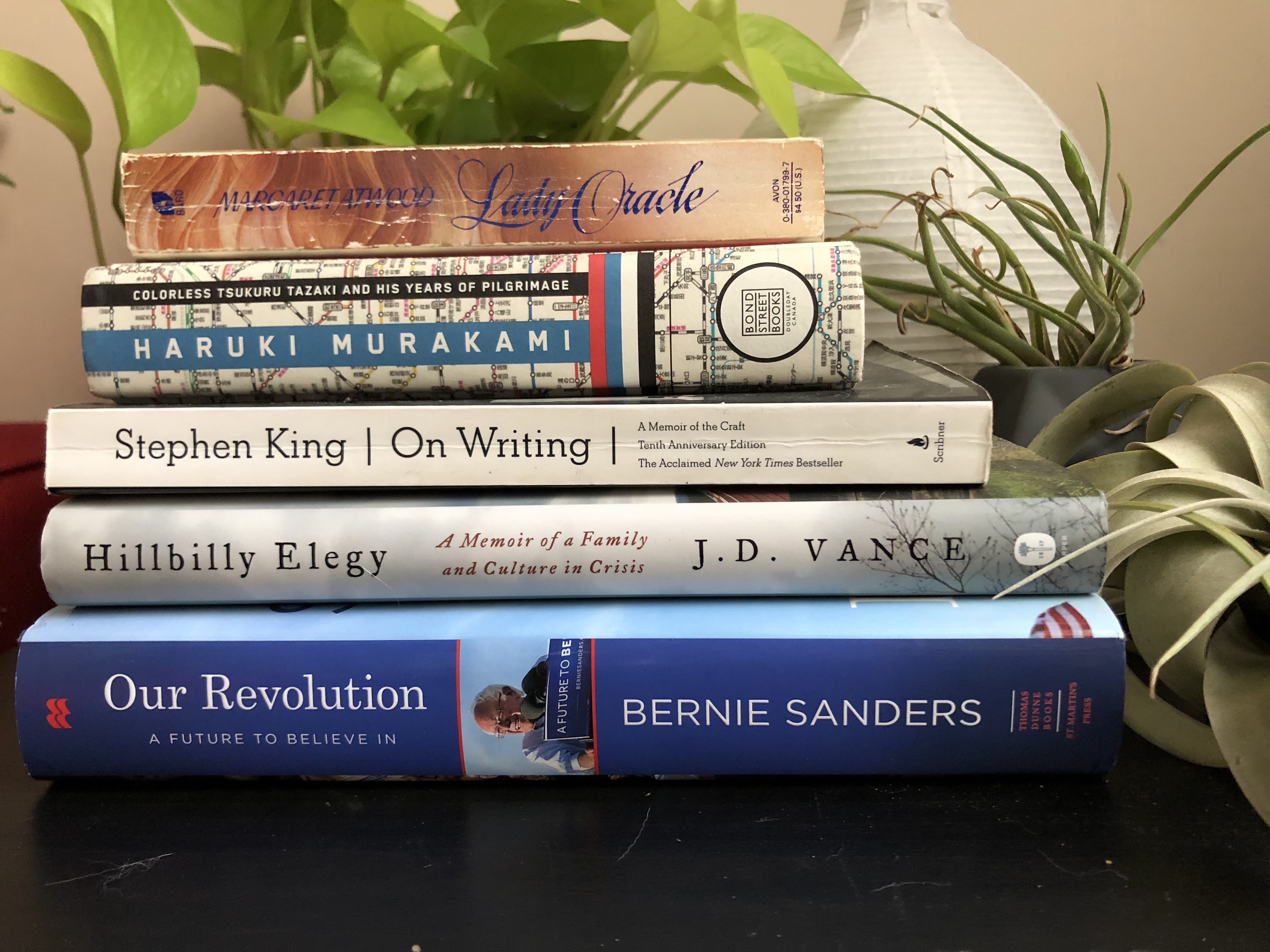
On Writing: A Memoir of the Craft
This one was hands-down my favourite. It's been a while since I've sunk my teeth into a good Stephen King novel; he kinda lost me with From a Buick 8 onward and I've never really gone back since (I think the trick is to go back and figure out which of his old works of horror and fiction I haven't read pre-Buick 8, and work my way up from there.)
As the name of the book implies, it's about writing. Not just why writers write, but an in-depth analysis of the challenges of being a writer, of struggling to have people accept your craft, and why you feel compelled to do it. It was nice to read about my craft in the words of someone who, arguably, is a much stronger wordsmith than I am, and who has been at it much longer than I have.
I also enjoyed being reminded of how funny he is; how quippy, with those weird little sayings that always made his characters that much more believable. His was a refreshing perspective on the art of writing, and reminded me that I should read more about what I do, not just the ways I do it.
Our Revolution
Obviously I read Bernie Sanders' book, which was released in November 2016. I was pro-Bernie from the moment he appeared on the political stage (ask me about my views on climate change, free post-secondary tuition, or the need for universal health coverage.)
Since I was already pretty well-versed with his political ideas, and why he believed them to be true, the book served as an opportunity to develop a better understanding of how he and his campaign managed to harness the sentiment of a growing, engaged Millennial class of voters and capture the imagination of people like me to the point where he was able to, with no campaign money, no political organization, took on the Democratic Party establishment.
Lady Oracle
I haven't read any Margaret Atwood since my binge on Alias Grace a few years back, and it was refreshing to return to an author who spends so much time analyzing her character's motivations and fears.
The novel's main character, Joan Foster, is an author who lives secret lives from the people around her, constantly worried that she will be "found out" as being less than she is perceived to be (as someone who regularly deals with anxiety and impostor syndrome, this book was often like having my own worries read back at me.)
I felt like Joan was symbolic of contemporary womanhood: trying to be everything to everyone, all the while hiding, deliberately ignoring, or shaming herself for her fantasies and talents, and it was lovely to immerse myself in Atwood's witty and often surprisingly sharp prose.
Colorless Tskuru Tazaki and His Years of Pilgrimage
Okay, so technically I haven't finished this one yet, but I'm close.
I haven't picked up a Murakami novel in years (I voraciously read through several of his novels in my late teens, my favourite being Norwegian Wood, which I highly recommend) and his brevity was an interesting contrast from Lady Oracle, which I finished shorty before starting this novel.
Like many of Murakami's novels, Colorless Tskuru is a Bildungsroman (hi, Rhetoric degree) though significantly less whimsical than some of his other works. The novel focuses on "colorless" Tskuru Tazaki, who is nicknamed as such because all of his childhood friends have a colour as part of their last names. One day during his college years he comes home and learns that his friends have cut all ties with him, seemingly with no reason. This devastates Tskuru, and leaves him feeling empty or "lacking in color and identity" according to Murakami. The novel begins when Tskuru is 32, and follows him as he travels to visit each of his former friends to discover why they cut ties with him in order to gain a sense of closure.
Since I haven't fully finished the novel I won't delve too deep into what I like and don't like about it so far, but I wanted to include it because reading work from non-English speaking authors is always an interesting experience. I mentioned Murakami's brevity above, and I'm continually impressed with his exploration of heartbreak, loneliness, and the human psyche without delving into the flowery language that tends to gum up English authors when they start delving deep into a personal or psychological problem. I'm really looking forward to seeing how the novel concludes.
Hillbilly Elegy: A Memoir of a Family and A Culture in Crisis
I started reading this memoir shortly after the 2016 election which left me, like many other people, reeling and feeling as though they fundamentally didn't understand the surge of white anger happening in America. I was grasping for some sort of understanding of the kinds of people who would vote for someone like Donald Trump, and J.D. Vance's memoir about growing up in a small Appalachian town was exactly what I needed to broaden my horizons.
The memoir is part reflection, part sociological analysis of the "hillbilly culture" he grew up with, which acts as both a source of pride, and a social mechanism which keeps people firmly in their socio-economic place, unable to (and in some cases, unwilling to) do what was necessary for a better life for themselves. It was a stark, eye-opening analysis of what's happening in rural America, and how the social rot encouraged by "hillbilly culture" has affected the United States.
Did you read any amazing books this year? Tweet at me and let me know!
One look at a banana and you can tell it came from outer space.
- by Alyson Shane
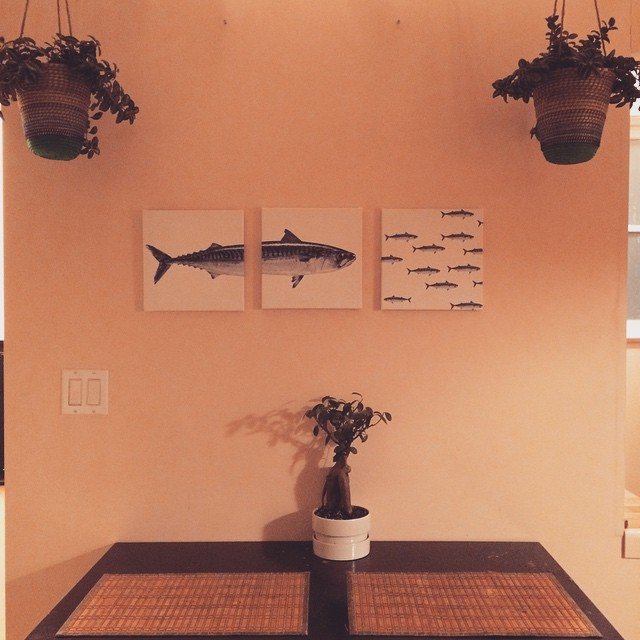
That line is from The Blind Assassin, by Margaret Atwood. John and I are reading it together right now - it's his first time but I've read it about four times since I first read it in my first year of university.
It's one of my favourites and it's neat sharing it with him.
We read together most evenings, and sometimes during the day on the weekends, too. Once in a while I read out loud but usually he reads to me while I curl up in our down comforter, or lie in his arms, or sometimes paint my toenails or clean the bathroom.
So far the list of books that we've read together looks like this:
The Tao of Pooh
Reunion
James and the Giant Peach
The Neverending Story
Station Eleven
The Blind Assassin
which I believe is missing a few but I can't really remember at the moment.
It's weird dating another avid reader, but wonderful. Our very first "date night" after we started dating was on a Friday night. We made rosemary chicken and salad and drank red wine and sat on John's shag rug and talked made out and he read Oscar Wilde poems to me.
How could I not be completely charmed, really?
Even now we read to each other constantly; yesterday while running errands John asked me to read something to him in the car and so I did.
He drove and I read and we talked and it was lovely.
Most of what I've done this weekend involved potting plants, shopping, cooking or reading. I spent very little time online and what time I did spend was largely spent reading articles in the car yesterday.
It was nice to unwind and recharge.
Don't get me wrong, it's nice to catch up on Twitter and write a bit here and whatnot.
But honestly I can't wait to peel back the blankets, get into bed, and lose myself in that book again.
Reading this beautiful book right now
- by admin
called "Reunion" by Alan Lightman.
It's about a professor who attends his 30th college reunion on the surface but like a good book it's also about heartbreak and misery and that sad sort of indifference that sets in when you look back on your life and find yourself disappointed. It's also about lost loves, burying emotions and bittersweet heartbreak.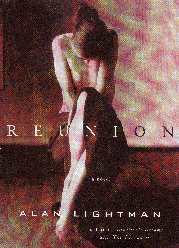
Though to say "I'm reading" isn't really true, because I'm having it read to me. Usually late at night after hours of talking and laughing when we should be sleeping and one of us looks at the other and says something like
"want to do some Book?"
which sounds like a secret term for something but isn't.
We're just both literary nerds.
I haven't read anything akin to a romance novel in a long time. I generally don't care for them.
The last one I read was The Time Traveler's Wife which was recommended to me while in a Chapters with an ex-boyfriend's cousin while living in Hamilton and I bought it on a whim because, looking back, I needed some romance in my life. Even if I was only going to be able to find it within the pages of a novel.
Recently though I'm finding myself drawn to romance novels. Mostly ones about betrayal and heartbreak and making beautiful, fucked-up, life-changing mistakes.
Because that's what we're all doing all the time, really, and that's what I feel my life has been lately: something beautiful that came from a bunch of fucked-up mistakes
which is the story of everyone's life when you step back and look at it.
I read a great article from Elite Daily a few weeks ago called Why Readers, Scientifically, Are The Best People To Fall In Love With which I think is absolutely true.
Being able to draw from the references I've learned from books has made this process easier. I can turn to Wilde and Bukowski and, now, Lightman and see sides of myself in their words because books teach us to love
to look at things from other people's perspectives
to be brave
to make the hard choices
to reflect on the bad ones
to not let the fleeting, inconsequential annoyances of day-to-day life get in the way of living.
I'm falling back in love with books and it's glorious.
It's like coming home.

White Oleander
- by admin
I first read the book when I was seventeen.
I found it in Bison Books which is in a different, not as good, location now.
The old location had an upstairs mezzanine level with this neat little alcove area where, as it turns out, I would eventually discover some of the most important books in my life.
It was air-conditioned and I was a teenager with a lot of time to kill and at the time my mum and I weren't getting along, and she would make me leave the house at 8am regardless of whether or not I had somewhere to go.
So I went to the bookstore.
That summer I reread the book at least a dozen times. I think I identified with the girl in the novel who didn't know who she was just yet.
Astrid was lost, and to a large extent that summer I felt lost.
I drifted around from place to place during the day between the two jobs that I worked, trying to avoid the two toxic relationships in my life: my boyfriend at the time, and my mother.
Things changed, of course.
That relationship ended, and I somehow managed to mend my broken relationship with my mother, and different books came to live in the large purses that I used to carry around before everyone got smartphones.
Watching the film now feels familiar.
It reminds me of that girl that I used to be, and that summer
and how we're always, still, a little bit lost.
Things I've learned so far while reading 'Ulysses'
- by admin
- Apparently the proper way to read the book is with at least one guide book which essentially deconstructs the chapters for you and explains what's going on. Which seems a bit backwards because isn't that the point in reading the book, anyway? To figure out what's going on?
- Apparently a lot of people find it to be an incredibly challenging read and have trouble getting to the part of the book that I managed to get to in a single sitting. Which means either I'm a genius, or I have no idea what I'm doing. You decide.
- Apparently I'm not going to understand what the f is happening until I reread all 700ish pages of it again at some point in the future. Great!
- Apparently skipping back to previous chapters is totally normal and accepted, which I didn't realize was unique to Ulysses because I do that with basically every novel I read.
- Apparently reading the introduction, the errata, and the notes to pages sections are basically useless, which is good because I don't usually read that stuff, anyway, and didn't this time.
- Apparently every time I pick up the book I'm going to think of this via Kate Beaton:
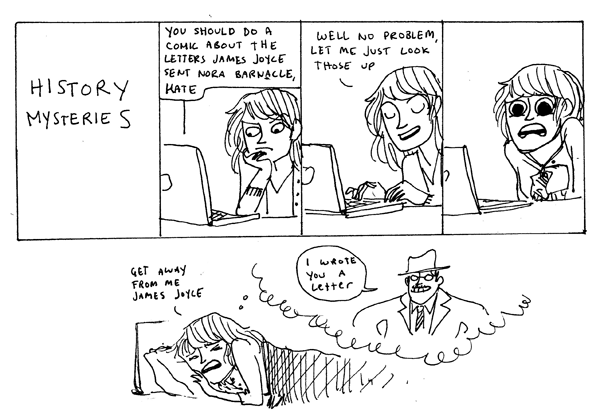
and also this:
Friday was Charles Bukowski's birthday
- by admin
even though he's dead but you probably knew that. It's important, I think, to remember stuff like that anyway. People who move you should always be remembered. Bukowski moves me.
I started reading Ham on Rye over Christmas break and it was the first Bukowski novel I've owned and read which is embarrassing to say out loud.
A few months earlier I was getting my hair done and my amazing baber at Hunter & Gunn, Mason, told me about when he lived in an awful, dingy, dark apartment. It was in the basement of a sketchy building with old, yellowed plastic venetian blinds in the windows and he talked to me about reading Bukowski at night.
"You have to read Bukowski" he said "you'll fall in love". So I did.
The feeling of love I get when I read Bukowski is the sickening kind. It's heavy like when you lock eyes with someone across the room and your stomach sinks into your toes. It's good but in a way that makes you feel not yourself.
Bukowski is harsh truths. It's the side of people we don't want to read about or would rather pretend isn't there at all. Reading Bukowski isn't like reading about serial killers and bloodbaths and people we can distance ourselves from. Pretend like we're different.
The personalities in his books are us in all our filth. Our hate. Our depravity. The disgusting things we think about each other. The fucked up and awful things that we do to each other for no reason.
Reading Bukowski leaves you feeling hollow afterward. Like someone came and scooped out your humanity while you were turning the pages.
Even though I'm a few days late, today I'm going to have a stiff drink and read Post Office.
It feels appropriate.

